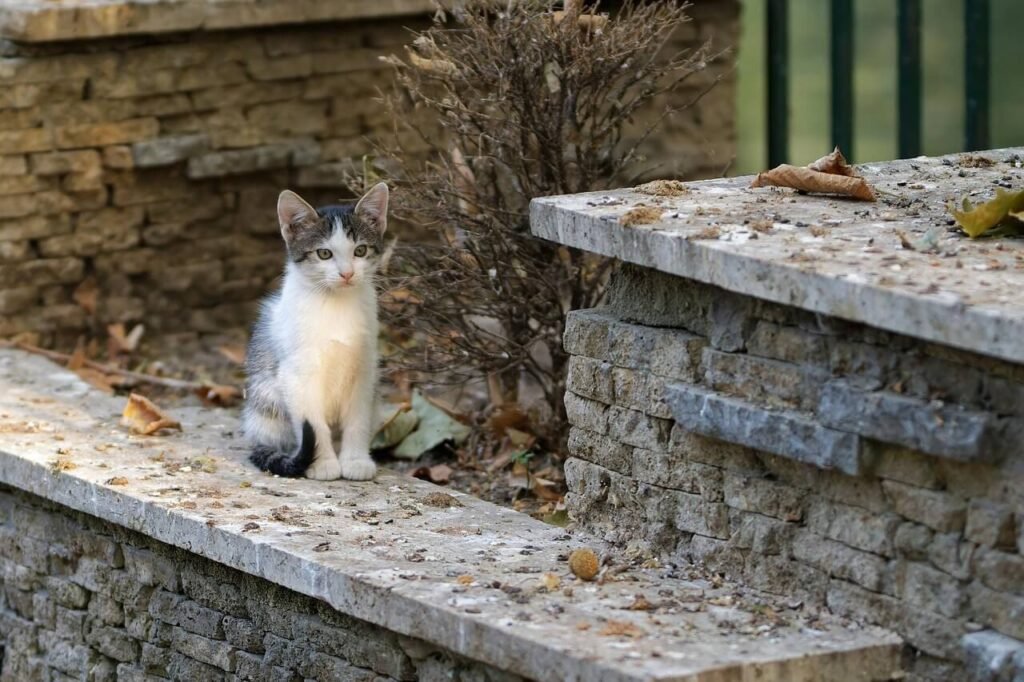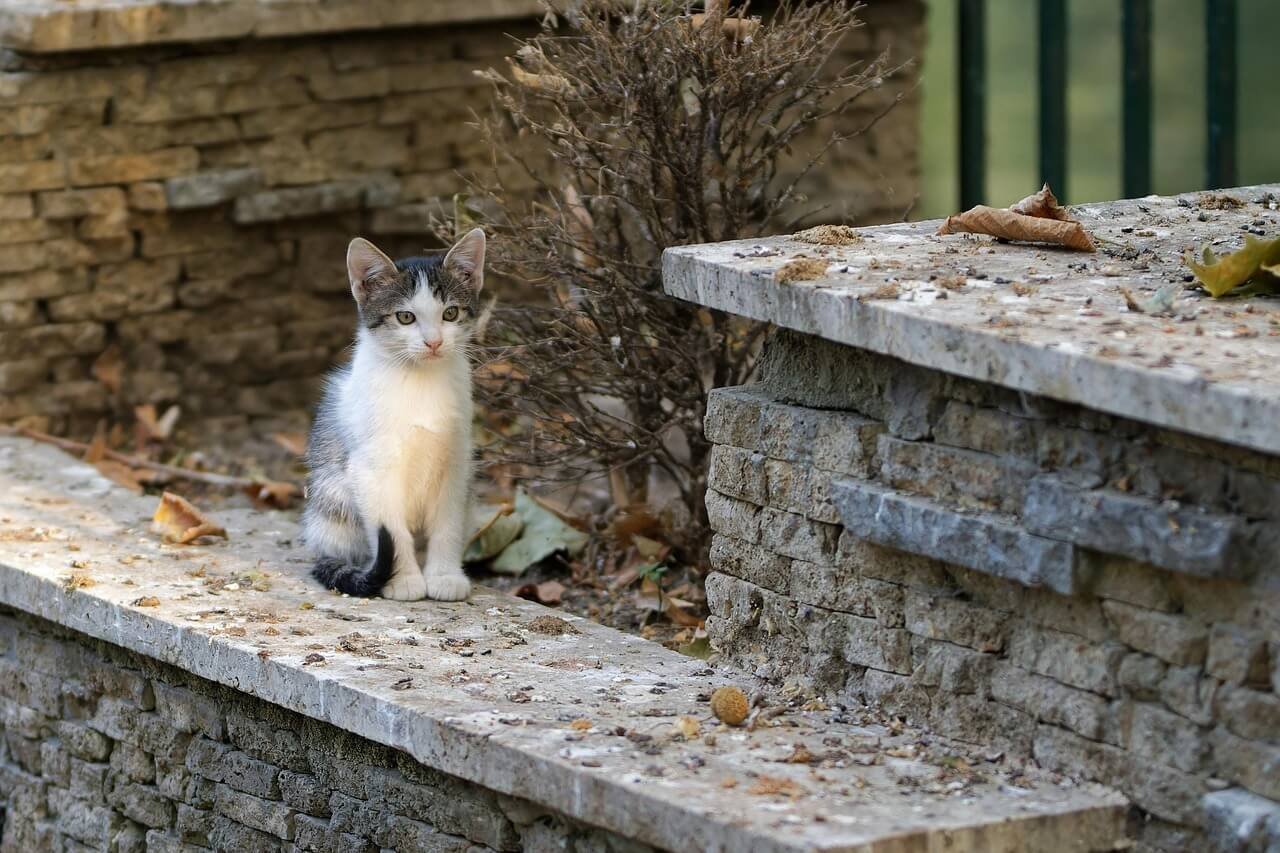Why Does My Cat Breathe Loud? Understanding the Causes and Solutions
If you’ve noticed your cat breathing loudly, it’s natural to feel concerned. While some noises are harmless, others could indicate an underlying health issue that requires attention. Cats are known for their quiet, subtle breathing, so any noticeable change can be alarming. Whether it’s a temporary reaction to stress or a sign of something more serious, understanding why your cat breathes loudly is the first step toward ensuring their well-being. In this guide, we’ll explore the potential causes, how to identify warning signs, and what actions you can take to keep your feline friend healthy and comfortable.
Common Causes of Loud Breathing in Cats
Loud breathing in cats can stem from a variety of factors, ranging from benign behaviors to serious medical conditions. Identifying the cause is essential for determining whether your cat needs immediate veterinary care. Here are some common reasons:
Nasal Congestion : Blockages caused by mucus, foreign objects, or infections can lead to noisy breathing.
Upper Respiratory Infections : Viral or bacterial infections often result in sneezing, coughing, and loud breathing.
Asthma : Feline asthma can cause wheezing or labored breathing due to airway inflammation.
Obesity : Excess weight can put pressure on your cat’s respiratory system, making breathing louder and more difficult.
Stress or Anxiety : Cats may breathe heavily or loudly when they’re frightened or stressed.
While some causes are harmless and resolve on their own, others require prompt attention. Always monitor your cat closely to determine if their symptoms persist or worsen.
Signs That Loud Breathing May Be a Medical Emergency
Not all instances of loud breathing are cause for alarm, but certain symptoms indicate a need for immediate veterinary intervention. Recognizing these red flags can save your cat’s life.
Open-Mouthed Breathing : Cats rarely pant or breathe through their mouths; if they do, it could signal distress.
Rapid Breathing : A respiratory rate above 40 breaths per minute while resting is abnormal and concerning.
Blue Gums or Tongue : This indicates oxygen deprivation and requires emergency care.
Coughing or Choking Sounds : These could point to a blockage or fluid buildup in the lungs.
Lethargy or Weakness : If your cat seems unusually tired or unresponsive alongside loud breathing, it’s a serious sign.
If you notice any of these symptoms, contact your veterinarian immediately. Early intervention can prevent complications and ensure your cat receives the care they need.
Check this guide 👉Cat Breath Smells Like Rotten Meat: Best 7 Expert Tips!
Check this guide 👉Why Is My Cat Breathing Fast While Resting? Best 7 Tips!
Check this guide 👉The Curious Case of Heavy Breathing in Cats: Best 7 Tips!

Normal Breathing Characteristics in Cats | Abnormal Breathing Warning Signs |
|---|---|
Quiet and barely audible | Loud, wheezing, or raspy sounds |
Consistent rhythm | Irregular or labored breathing |
No visible effort to breathe | Flared nostrils or abdominal effort |
Resting respiratory rate: 20–30 breaths/min | Rapid or shallow breathing (>40 bpm) |
Calm behavior during rest | Panting, coughing, or choking |
How to Help Your Cat with Loud Breathing at Home
While professional veterinary care is often necessary, there are steps you can take at home to support your cat and alleviate mild cases of loud breathing.
Keep Them Calm : Minimize stressors like loud noises or unfamiliar environments to reduce anxiety-related breathing issues.
Provide Fresh Air : Ensure good ventilation in your home and avoid exposure to smoke, perfumes, or cleaning chemicals.
Monitor Weight : Maintain a healthy diet and exercise routine to prevent obesity-related respiratory problems.
Clean Their Nose : Gently wipe away discharge or debris around their nasal passages using a damp cloth.
Hydration and Nutrition : Offer plenty of fresh water and high-quality food to boost their immune system and overall health.
These measures can help manage mild cases, but remember that persistent or severe symptoms always warrant a vet visit.
When to Visit the Vet for Loud Breathing Issues
Knowing when to consult a veterinarian is key to addressing your cat’s loud breathing effectively. Some situations demand immediate attention, while others may require routine check-ups.
Sudden Onset : If the loud breathing starts abruptly without an obvious cause, schedule a vet appointment promptly.
Persistent Symptoms : Breathing issues that last more than 24–48 hours should not be ignored.
Behavioral Changes : If your cat becomes withdrawn, lethargic, or refuses food, it’s time to see the vet.
Preexisting Conditions : Cats with chronic illnesses like heart disease or asthma need regular monitoring for breathing changes.
Post-Trauma : After accidents or injuries, even minor ones, have your cat evaluated for internal damage affecting their breathing.
Your vet will perform tests such as X-rays, blood work, or ultrasounds to diagnose the root cause and recommend appropriate treatment.
How Your Home Environment Impacts Your Cat’s Respiratory Health
Your cat’s surroundings play a significant role in their breathing patterns. Certain environmental factors can irritate their respiratory system or exacerbate existing issues. Here are some common culprits to be aware of:
Strong Scents : Air fresheners, candles, or cleaning products can irritate your cat’s sensitive airways.
Dust and Allergens : Accumulated dust, pollen, or mold spores can trigger sneezing or noisy breathing.
Temperature Extremes : Hot or cold environments may stress your cat’s respiratory system and lead to labored breathing.
Poor Ventilation : Stale or stagnant air can trap allergens and pollutants, worsening breathing issues.
Secondhand Smoke : Exposure to cigarette smoke is highly toxic to cats and can cause chronic respiratory problems.
By addressing these environmental factors, you can create a safer and more comfortable space for your cat to breathe easily.
Certain Cat Breeds Are More Likely to Experience Loud Breathing
While any cat can develop breathing problems, some breeds are genetically predisposed to respiratory challenges due to their physical characteristics. If you own one of these breeds, extra vigilance is key.
Brachycephalic Breeds : Cats like Persians or Himalayans often have narrow nasal passages, making breathing noisier.
Maine Coons : This large breed is prone to heart conditions that can affect breathing.
Abyssinians : Known for being active, they may develop asthma or allergies more frequently than other breeds.
Siamese Cats : Their slender build and sensitive airways can make them more susceptible to respiratory infections.
Exotic Shorthairs : Similar to Persians, their flat faces can lead to chronic breathing difficulties.
Understanding your cat’s breed-specific risks allows you to take preventive measures and seek timely veterinary care if needed.
Supporting Your Cat Through Ongoing Respiratory Challenges
If your cat has been diagnosed with a chronic condition like asthma or allergies, managing their symptoms becomes an ongoing priority. With proper care, you can help them live comfortably despite their condition.
Medication Adherence : Administer prescribed medications, such as inhalers or anti-inflammatory drugs, consistently as directed by your vet.
Regular Vet Check-Ups : Schedule routine visits to monitor your cat’s condition and adjust treatment plans as needed.
Air Quality Control : Use air purifiers and keep your home clean to minimize allergens and irritants.
Weight Management : Maintain a healthy weight to reduce strain on your cat’s respiratory system.
Stress Reduction : Provide a calm, predictable environment to prevent stress-induced breathing episodes.
With dedication and proactive management, you can significantly improve your cat’s quality of life and minimize the impact of chronic breathing issues.
Frequently Asked Questions About Loud Breathing in Cats
Is it normal for cats to snore?
Occasional snoring is normal, especially in brachycephalic (flat-faced) breeds, but persistent or loud snoring should be checked.
Can allergies cause loud breathing in cats?
Yes, allergies to dust, pollen, or mold can irritate their respiratory system and lead to noisy breathing.
How can I tell if my cat has asthma?
Look for signs like wheezing, coughing, or difficulty breathing, particularly after activity or exposure to allergens.
Should I worry if my cat pants after exercise?
Occasional panting after intense play is usually fine, but frequent or prolonged panting is unusual and warrants investigation.
What should I do if my cat stops breathing?
Perform CPR if trained and rush them to the nearest emergency clinic immediately.
Stay Attentive to Protect Your Cat’s Health
Understanding why your cat breathes loudly empowers you to recognize potential problems early and act decisively. While some cases are harmless and resolve on their own, others may indicate serious conditions requiring veterinary care. By staying observant, providing a safe environment, and seeking professional advice when needed, you can ensure your cat enjoys a happy, healthy life. Remember, your furry companion relies on you to advocate for their well-being—so trust your instincts and prioritize their health above all else.
Do Cats Have Taste Buds? Best 7 Expert Tips! – Discover how cats experience flavors and why their taste is so unique.
Do Dogs Have Taste Buds? Best 7 Expert Tips! – Discover how dogs experience taste, their preferences, and what it means for their diet and health.
Can Cats Taste Sweet? Best 7 Expert Tips! – Discover why cats can’t taste sweetness, how it affects their diet, and tips to keep them healthy and happy.
Can Dogs Taste Sweet? Best 7 Expert Tips! – Discover how dogs perceive sweetness, which foods are safe, and tips to manage their sweet cravings responsibly.





